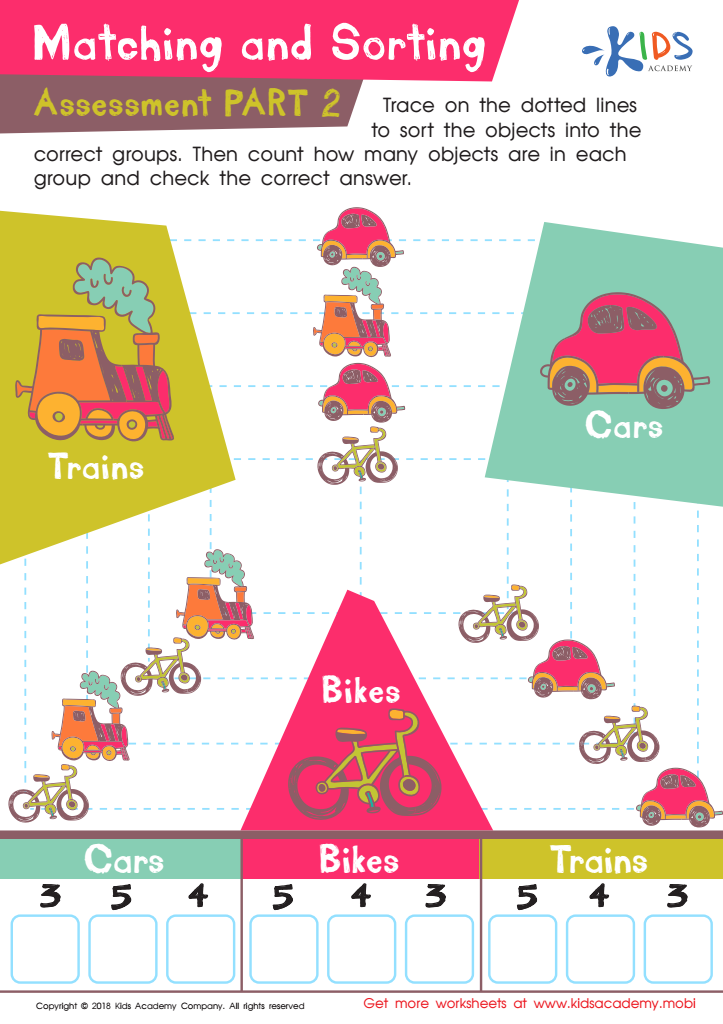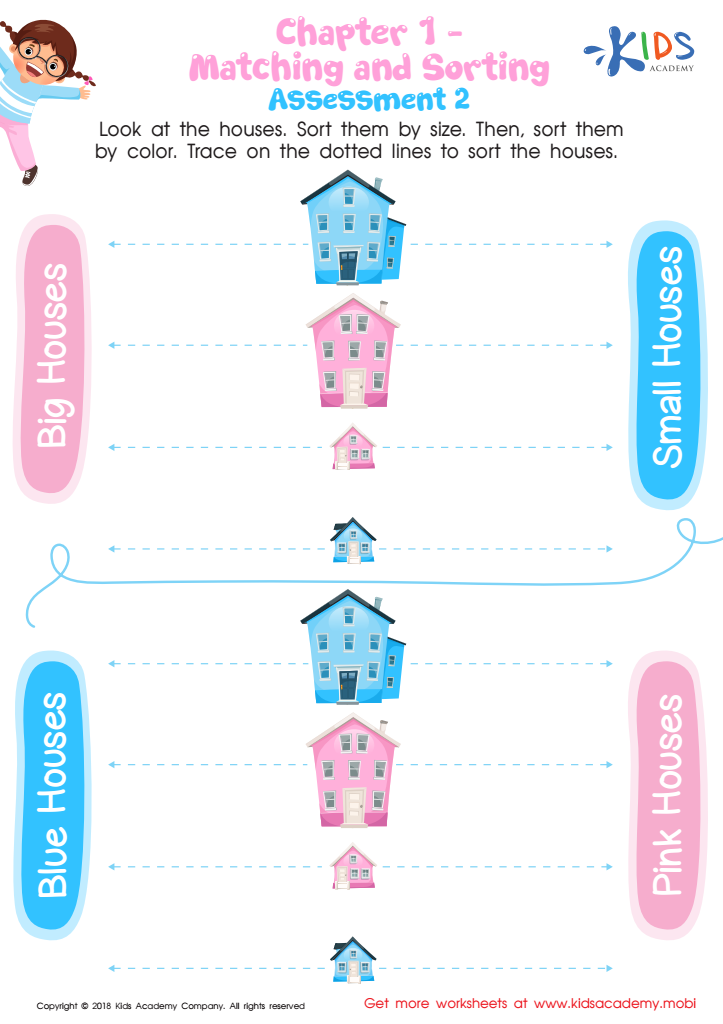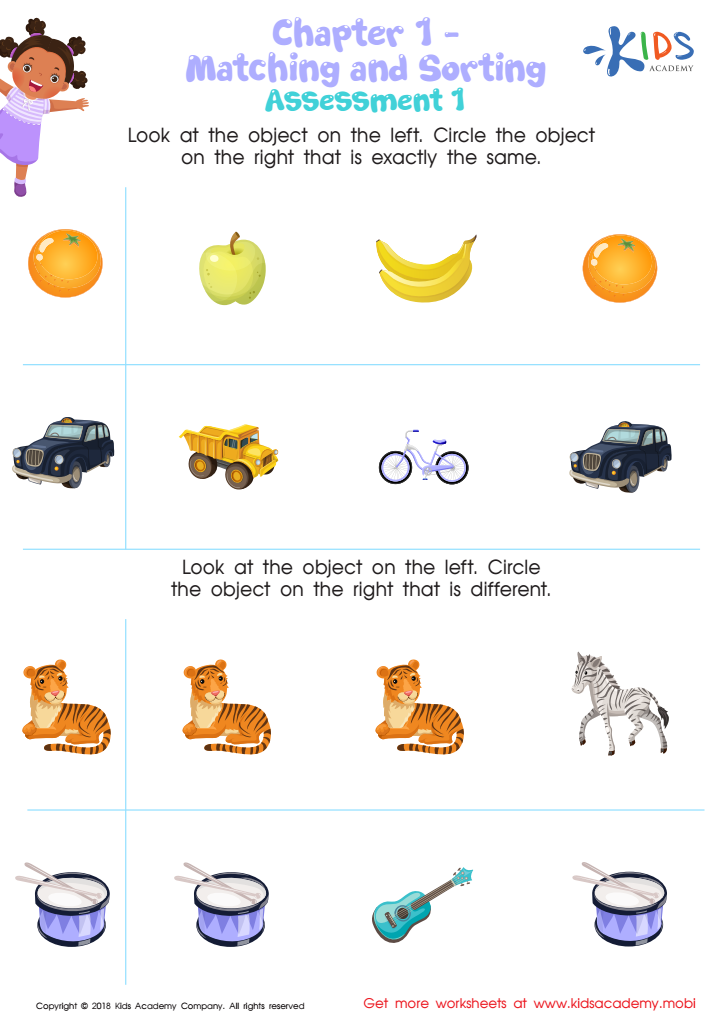Understanding fractions Sorting Worksheets for Ages 3-6
3 filtered results
-
From - To
Explore our "Understanding Fractions Sorting Worksheets" designed for young learners aged 3-6! These engaging and colorful worksheets introduce the basics of fractions through fun sorting activities tailored to enhance early math skills. Children can visually distinguish between whole parts and fractions, fostering a foundational understanding of these essential concepts. Our worksheets feature dreamy thematic illustrations to make learning enjoyable and interactive. Teachers and parents can easily use these resources to promote hands-on learning at home or in the classroom. Download and watch your child's confidence grow as they master sorting fractions while having fun! Help build their math skills today!


Matching and Sorting for Kindergarten: Assessment 2 Worksheet


Matching and Sorting for Preschool: Assessment 2 Worksheet


Matching and Sorting for Preschool: Assessment 1 Worksheet
Understanding fractions and sorting is essential for young children aged 3-6 as it lays a foundational block for mathematical reasoning and critical thinking skills. During this developmental stage, children are naturally curious and eager to explore concepts of part-to-whole relationships. Teaching them fractions through sorting activities can turn abstract ideas into tangible experiences.
Sorting familiar objects by size, color, or shape helps children grasp the essence of fractions—inclusive recognition of portions and subsets of a whole. For example, if children sort a collection of apples and oranges, they begin to understand that one category (apples or oranges) represents part of a larger set (the total of both). This investigation promotes cognitive skills including comparison, classification, and logical thinking, which can enhance their overall academic performance.
For parents and teachers, fostering an early understanding of these mathematical concepts reinforces their children's confidence, encourages collaborative play, and builds essential skills for future learning. Engaging children in playful and interactive fraction-like sorting activities also nurtures their social abilities, as they learn to share ideas and collaborate. Ultimately, investing time in these early experiences prepares children well for more complex mathematical tasks in later years.
 Assign to My Students
Assign to My Students
















